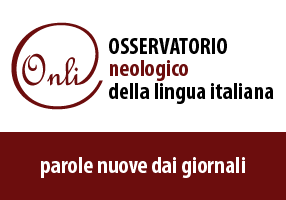ILIESI
ILIESI Institute Lessico Intellettuale Europeo e Storia delle idee
National Research Council
Villa Mirafiori
Via Carlo Fea 2
00161 Roma
Tel. +39 06-86320517
segreteria.iliesi@cnr.it
INSTITUTE | History | LIE
The Center for the Study of the European Intellectual Lexicon (LIE) of the National Research Council – CNR was established in 1964, by Tullio Gregory and Tullio De Mauro when a reform in Italian law permitted the CNR to widen its research activity into the fields of human and social sciences. Tullio Gregory directed the project from 1964 to 2007, even after the merger of LIE with the Center for the Study of the Ancient Philosophy (PA) in 2001. From its very beginning the research focused on language and in particular on the study of ancient languages. Special attention was paid to post-classic and modern Latin, which were used to write many works from the ‘400s to the ‘700s.
The aim of the “European Intellectual Lexicon” is to concentrate its research on the lexical analysis of cultural texts, applying the classic procedures used in lexicographical analysis to the history of philosophy and science with thoroughness and perspicacity.
The research is carried out through the careful reading of the text to be examined, with the objective of searching for examples that show the existence, the form, the meaning and the use of particular words in a specified historical period, hence respecting both the “origins” and the “needs” of the historical period in which the work was published.
The fundamental element which allowed the research programme “European Intellectual Lexicon” to be set up and to develop was the possibility to treat automatically – thanks to the new computer science – the linguistic data and so to accumulate large numbers of documents and to structure the needs of a term in a comprehensive way. To carry forward its research LIE firstly established a specialized library where a collection of philosophical and scientific works, medical papers, physics and mathematical works and also legal and political texts dating from the 17th to the 18th century has been accumulated. This immense patrimony served to build a terminological data bank that is still one of the widest collections regarding the history of the European intellectual lexicon in the 17th and the 18th centuries. As the data access was only sequential a printed version of the large collected documentation was arranged.
Since 1974 the Center organizes, every three years, a series of International Colloquia on a specific term or couple of terms of particular philosophical and scientific relevance such as «Ordo», «Res» or «Phantasia-Imaginatio», «Sensus-Sensatio». Furthermore since 1981 the Center also organizes International Conferences and Meetings on different topics related to various aspects of its research, such as the application of statistical methods to the understanding of a text, transmission of printed texts in the modern age, the study of handwriting and the punctuation in medieval latin. In addition, both the quantity and quality of the scholarly contributions published by the researchers of the Center deserve to be stressed: since its foundation the LIE has published almost 90 books, which cover the main aspects of modern European culture.

 Brochure
Brochure


